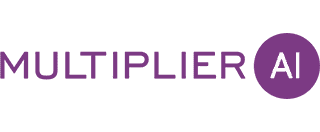
5 Ways By Which Artificial Intelligence Can Boost Pharmaceutical Industry
Artificial Intelligence (AI) was first applied drug product development in 1990s, by using neural networks to predict the features of immediate release of the oral tablets. Later Artificial Intelligence enhances the process control by ensuring the consistent product quality and by predicting the quality deviations. AI in pharmaceutical industry also analyzes the real world data for detecting the adverse drug reactions and maintaining the safety of pharmaceutical products.
How Artificial Intelligence can Boost Pharmaceutical Industry
There are numerous ways in which AI can boost pharmaceutical industry by leveraging the pharmaceutical company marketing in the following ways:
1. Clinical Trial Optimization
Artificial Intelligence in pharma helps in identifying the suitable candidates by analyzing the health records and genetic data of the biomarkers and aids in the development of the targeted therapies and also improving the diagnostic accuracy accordingly. AI tracks the patient’s progress and for the best outcomes adjust the protocols in the real time.AI detects and addresses anomalies or protocol deviations promptly by reducing trial risk. With the predictive analytic AI identifies bottlenecks or dropouts risks by allowing proactive interventions.
2. Predicting Drug Efficiency
Artificial Intelligence plays a very crucial role in predicting drug efficacy with in the pharmaceutical industry. AI evaluates the genetic variations and patterns in the patient’s outcome. AI predicts efficacy based on the datasets of successful and failed drugs as well. Molecular docking simulations predicts that how a drug interacts with the target. After this AI identifies the biomarker who correlates with the positive responses to the particular drug. From the dynamic adjustments in the trial protocols AI monitors the clinical trials and then maximize efficacy.
3. Drug Discovery and Design
AI in the pharmaceutical industryanalyzes the algorithms that can identify the potential drug candidates with the vast datasets of molecular and genetic information. With the pharmaceutical marketing strategy, AI predicts the efficacy and designs the new drug molecules with the desired properties and thus contributes in accelerating the speedy discovery phase by reducing the cost on Research and Development.
4. Supply Chain Management
The pharmaceutical marketing strategyuses artificial intelligence to forecast the inventory needs and then manages the stock levels accordingly. It also supports in improving the logistics for the on time delivery of the desired products and reduces its cost with the further delays, for this it improves production planning by preventing shortages or over production. AI also inspects manufacturing and distribution processes to ensure compliance with Good Manufacturing Practices. It also automates documentation for compliance with the local and international regulations.
5. Drug Repurposing
AI helps in identifying the new applications for the existing drugs by the identification of different patterns in the biological pathways. AI also evaluates the interaction of existing drug molecules with the different disease targets and predicts the drug binding with the different alternatives. Pharmaceutical company marketing focuses on powering the AI to construct complex biological network to identify the pathways between drug and disease. It identifies potential synergistic effects when repurposing drugs in combination therapies.
AI allows pharmaceutical companies to optimize the existing assets while addressing emerging healthcare challenges.
Optimize Digital Marketing and Improve sales in Pharma
As much as traditional methods of marketing are successful strategies to maintain strong relationships with customers, it’s time to move on, if you haven’t already, to digital marketing.
Digital marketing is a powerful tool to reach a global audience through social media, blogs and websites. Brands can also leverage platforms like GoogleMeet for webinars, one-on-one meetings with HCPs and KOLs, etc. SEO and targeted content marketing help to attract and retain interested users by providing educational and informative content at the tip of their hands.
1. Digital Technologies
Incorporating technologies like AI-driven tools can optimize interaction and target marketing strategies by providing real-time insights and recommendations. Consider the example of Multiplier AI tools, if provided data, they can segment data based on similarities and aid in refining sales strategies by providing deep insights and market predictions. Other tools like virtual assistants and Chatbots powered by AI allow to improve customer engagement by providing quick responses and even using previous interactions and user data to give personalized responses. Virtual Reality can also be leveraged for training sales reps and influencing investors and clients.
2. Train the Staffs
Sales Representatives should be well-educated on the product they are about to sell and know about the HCP they are targeting, regulations, market trends, etc. Provide training to improve their skills by giving scenario-based training, etc. Track their performance and offer them regular feedback to improve if there are any shortcomings.
3. Personalized Content Marketing
HCPs and Patients value information, so provide them with transparent information to build trust and loyalty. Content can be in any form: podcasts, blog, YouTube video, Instagram posts, etc. Use AI, for instance, Multiplier AI, to segment data based on content preference and channel reference and use the insight to target content. This enhances customer engagement and thus helps in improving sales in pharma.
Improving sales in the pharmaceutical industry is not a one-step process, it is an amalgamation of data-driven insights, digital marketing, etc in compliance with industry regulations. By adopting these strategies and leveraging AI tools pharma companies can boost their sales.
